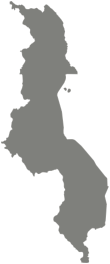At Feed the Children, we believe mothers are best qualified to create community improvements in the important areas of early childhood education, nutrition, and health. Through our Early Childhood Development centers, and with our Care Group model, we promote proper nutrition, safe water, sanitation, and hygiene practices, and encourage clean play areas so that children are able to grow to their potential. In Malawi, we implement our Child-Focused Community Development (CFCD) model as well as a large government funded program called Tiwalere II. As part of these projects, we are able to do much more than just provide food. We address and implement key activities related to food and nutrition, health and water, education, and livelihoods. More than 1.04 million individuals benefit from our work in Malawi.
Feed the Children partners with multiple private and public partners in Malawi. We work with Proctor & Gamble to promote the use of ‘Purifier of Water’ sachets and teach caregivers how to prevent common water-borne illnesses through proper water, sanitation, and hygiene practices. In 2017, our health and water activities reached 99,500 individuals. Additionally, we partner with non-profit organizations such as World Relief and Total Land Care to utilize their technical expertise and experience implementing activities that address health messaging for adolescent girls and innovative agriculture inputs to enhance our livelihood work.

On average, children receive only 4.5 years of schooling.
50.7% of the people in Malawi live BELOW the POVERTY LINE.
Population
18 Million
Children with stunted growth
37%
Babies born with a low birth weight
12%
Rural population without access to an improved latrine
43.9%
Country Profile
Malawi is known as “The Warm Heart of Africa” because of the kindness of its people. This landlocked nation in East Africa is home to Lake Malawi, and it lies along the Great Rift Valley. Malawians often face significant hardship. Most families in Malawi rely on agriculture for their income, and HIV/AIDS continues to devastate the population which causes many children to lose their parents and siblings.
However, the nation is continuing to show signs of improvement. Throughout the last few decades, childhood mortality has decreased and children live longer with more opportunities to succeed in life.
Support Our Programs
In Malawi, FEED has made significant progress in improving the nutritional status of our beneficiary communities; increasing access to education; promoting healthy behaviors among children and their caregivers; and empowering communities to become self-sustaining as they overcome poverty. One way that we are doing this is by promoting the use of clean water. Having clean drinking water is critical for good health, especially for children, but access to clean water can be difficult and time consuming.
Throughout our program areas in Malawi, we are providing access to clean water through the drilling of boreholes. Our FEED staff train families on proper storage of water to ensure the household drinking water does not become contaminated. Additionally, we distribute packets of water purifying powder that turns dirty and potentially deadly water into water that is clean and safe to drink.
Would you consider partnering with FEED to continue this important work? Your support enables us to continue implementing health & water activities like promoting clean water in communities.

